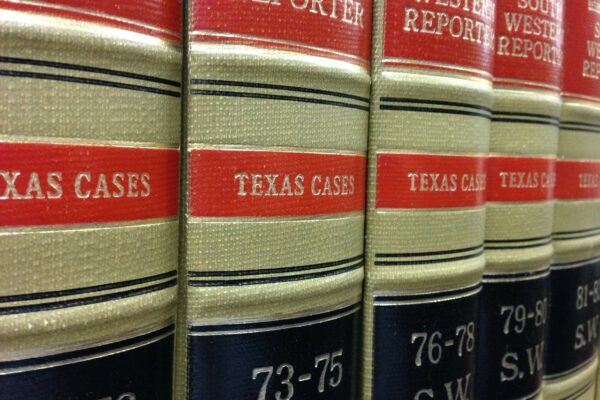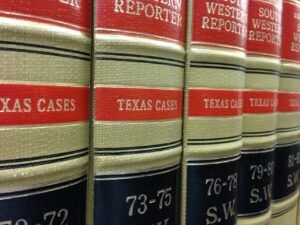TEXAS 2021 LEGISLATIVE SESSION: WHAT CHANGED FOR TEXANS?
The Texas Legislature’s 87th Regular Session was one of the most extreme in recent memory. Lawmakers introduced highly unpopular bills to restrict abortion, voting, and free speech, among other civil rights. Yet, they failed to address some of the most pressing issues facing Texans, like pandemic and winter storm financial relief, or comprehensive police reform. In a dramatic ending to the session, the entire nation watched as more than 60 Democratic members blocked a vote on voter suppression legislation by leaving the House floor.
Abortion will be banned after six weeks gestation, before many people know they are pregnant.
All Texans have a constitutionally protected right to decide whether and when to become a parent, including the right to terminate a pregnancy. However, this session, Texas lawmakers continued their crusade against abortion access and passed Senate Bill 8, a near total ban on abortion starting at six-weeks gestation, which is set to go into effect later this fall.
The bill also allows anyone in the world to sue doctors, nurses, and individuals in Texas who help someone get an abortion, as well as anyone who intends to violate the law. Over a dozen other states have passed six-week bans and each of those have been blocked by a court. The law does not go into effect until Sept. 1, so abortion is still available in Texas for now.
Although 54% of Texans oppose a policy of this sort, lawmakers also passed House Bill 1280, which would immediately outlaw abortion in Texas in the event that the Supreme Court overturns Roe v. Wade or states are granted the authority to prohibit abortions. This law has no exceptions for rape or incest and would subject doctors to first-degree felonies for providing what was previously constitutionally protected healthcare.
Your voting rights remain mostly the same, for now.
Republicans almost passed an unpopular omnibus voter suppression bill, Senate Bill 7, which would have disproportionately harmed voters of color and voters with disabilities. The legislation would have banned drive-thru and 24-hour voting, limited polling hours, threatened “Souls to the Polls” — popular among many Black voters, empowered partisan poll watchers, made it easier to overturn an election, and added 16 new or expanded criminal penalties to the election code.
After Senate lawmakers manipulated the rules to take a last-minute vote on this controversial bill, more than 60 House members left the chamber so that the House could not take a vote on this and other bills, and it failed to pass. Gov. Greg Abbott has said that he will bring back lawmakers for a special session later this summer to take up the bill again.
Several smaller elections-related bills did pass that mostly affect how local officials conduct elections. These bills add criminal penalties for election workers for counting votes they know to be invalid (House Bill 574), shorten the time for local officials to file death information for registered voters with the secretary of state (House Bill 1264), tighten regulations for the address voters can use to register to vote (Senate Bill 1111), and require that all voting machines used in the state must be manufactured and sold by U.S. companies (Senate Bill 1387).
You won’t see state-mandated police reform, despite promises from the governor.
After George Floyd’s murder, Gov. Abbott met with his family and pledged to advance the George Floyd Act to “prevent police brutality like this from happening in the future in Texas.”
But the George Floyd Act didn’t even get a vote this session. The bill included reform of qualified immunity, progressive disciplinary requirements for police officers, and requirements for de-escalation and proportionate response, among other reforms.
Lawmakers did pass a bill that requires police officers to intervene to prevent another officer from using excessive force (Senate Bill 69). The legislature also recognized severe law enforcement oversight failures when it chose not to reauthorize the Texas Commission on Law Enforcement.
If you’re a trans kid or parent, your rights stay the same, for now.
Lawmakers introduced over 30 anti-LGTBQ+ bills this session, of which 13 explicitly targeted the trans community. They included efforts to ban trans kids from playing youth sports (Senate Bill 29), ban doctors from providing trans youth with gender-affirming health care (Senate Bill 1311), and criminalize parents for supporting their transgender kids (Senate Bill 1646). All of these anti-trans bills failed. Lt. Gov. Dan Patrick has threatened to bring back these bills in a special session, but Gov. Abbott has not yet signaled whether he supports such a move.
The ACLU is currently suing other states that passed anti-trans bills in the past two years, and the Biden administration is expected to issue new guidance further protecting transgender young people from discrimination. Last year, the 6-to-3 Supreme Court decision in Bostock v. Clayton County, Georgia significantly strengthened the legal framework that protects LGBTQ+ people from discrimination under federal law.
You won’t get financial relief for the blackout, and new regulations on the electric grid remain unfunded.
Winter storm Uri and the devastating electrical blackout in 2021 left 700 people dead and 5 million without power. Yet, lawmakers failed to pass several bills that would have provided financial relief to impacted families. The “Providing Ongoing Water and Energy Resources (POWER) to Texas Consumers Act” (House Bill 3460), for example, would have created a grant program to provide direct financial assistance to Texans affected by the blackout. A Senate bill that would have provided a $350 credit on Texans’ electric bills similarly died without getting a vote in the House.
Polls show that Texans overwhelmingly support measures to upgrade facilities and create new disaster systems. Lawmakers did pass Senate Bill 3, which requires power generators, transmission lines, natural gas facilities, and pipelines to make upgrades for extreme weather, but the bill doesn’t provide any funding to pay for the upgrades or enforce the new mandates.
Your kids won’t learn key lessons about racial injustice in school.
In a last-ditch procedural twist, the Senate passed House Bill 3979 that bans “critical race theory” in Texas schools by restricting how teachers discuss current events. Critical race theory teaches that racism is systemic in American laws and history, and that it continues to drive disparities between white Americans and Americans of color in terms of wealth, health, education, and criminal justice. HB 3979 also forbids students from receiving course credit for civic engagement.
You might get better broadband access if you live in an underserved area.
People without broadband access — who are disproportionately non-white, low income, or living in rural areas — have fewer opportunities in education, employment, banking, and other technologically-dependent aspects of life.
The legislature passed House Bill 5 to expand broadband access across the state by creating a State Broadband Development Office. The office will award grants, low-interest loans, and other incentives to spur expanded broadband connectivity.
The bail system stays the same, for now.
More than two out of three people in Texas jails have not been convicted of a crime. Lawmakers advanced bills that would have enriched the bail industry and locked even more people up before they go to trial. These efforts failed when Democrats left the House floor, but the governor has promised to revisit this issue in a special session this summer.
House Joint Resolution 4 proposed an amendment to the Texas Constitution allowing the government to deny bail for a wide range of new alleged offenses, regardless of the strength of evidence presented. House Bill 20 would have made it harder for people accused of certain offenses to get out of jail if they can’t afford it, while allowing those with means to purchase their freedom.
You can face jail time for certain kinds of protest activity.
The murders of George Floyd and Breonna Taylor in 2020 sparked the largest protest movement in history. Thousands of Texans risked their lives exercising their constitutional right to free speech, when protests against police brutality across the state were met with more police brutality.
Instead of answering the call to reshape policing, lawmakers prioritized bills targeting protest activity. House Bill 9 requires jail time for people who block emergency vehicles or hospital entrances during a protest, without any common-sense provisions to protect protest rights. And House Bill 2366 increases criminal penalties to the felony level for using fireworks or laser pointers to interfere with official police activity.
Your local government has less control over its own budget.
As Texans explore more effective ways to address public safety, the legislature passed two measures that punish counties and large cities if they reallocate law enforcement funds to libraries, parks, and social services.
House Bill 1900 triggers a range of punitive measures like reductions in state funding if law enforcement spending is cut in cities with populations greater than 250,000. Senate Bill 23 triggers an automatic countywide election when county governments reduce law enforcement spending.
You can be fined and criminally charged for camping in an unapproved public place.
The legislature passed a statewide camping ban (House Bill 1925) targeting unhoused Texans who are forced to sleep outside. The bill creates a class C misdemeanor in the penal code, with a fine of $500, for camping in an unauthorized public place. The bill effectively criminalizes homelessness without providing the resources required to help people living outside.
Your First Amendment right to support boycotts has been further eroded.
The right to boycott is a crucial part of the First Amendment and an important tool for advocacy in the pursuit of equality. In 2017, the Texas legislature prohibited state contracts with any company or individual engaging in a boycott against Israel. This session, Senate Bill 13 similarly banned boycotting the oil and gas industry and Senate Bill 19 banned boycotting firearms companies.
More Texans can access medical marijuana.
House Bill 1535 expands Texas’ Compassionate Use Program for medical marijuana to cover people with cancer and post-traumatic stress disorder. The Senate removed a provision that would have allowed anyone with chronic pain to access medical marijuana.
You can carry a gun without a license.
After a gunman opened fire in a Walmart in El Paso in 2019, killing 22 people and wounding 23 others, Gov. Abbott promised legislative action. Instead, the legislature passed a bill that allows people to carry handguns in Texas without a concealed handgun license (House Bill 1927). Polls indicate that 59% of voters oppose unlicensed gun carry. The Supreme Court has stated that the Constitution does not confer a “right to keep and carry any weapon whatsoever in any manner whatsoever and for whatever purpose.”
Religious communities can ignore certain public health and safety rules.
Texas has some of the strongest laws in the country protecting religious expression. Under the guise of “religious freedom,” the legislature passed several bills that position First Amendment protections for religious practice over and against other rights and public safety concerns. The same legislature passed other bills to limit First Amendment protected activity like free speech.
House Bill 525 makes places of worship “essential businesses” under state emergency law so that they cannot be closed via an emergency order. House Bill 1239 prohibits any government agency or public official from issuing an order that would close a place of worship. And Senate Bill 581 prevents homeowners’ associations from ordering removal of religious displays on a homeowner’s property.









